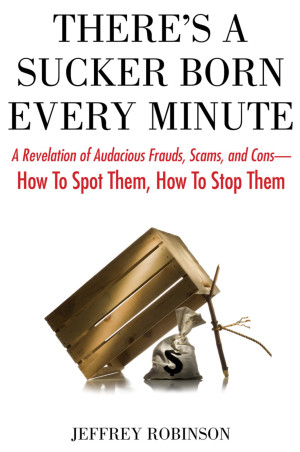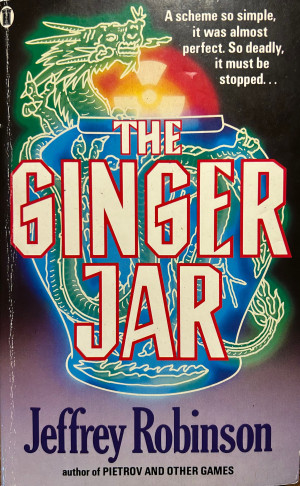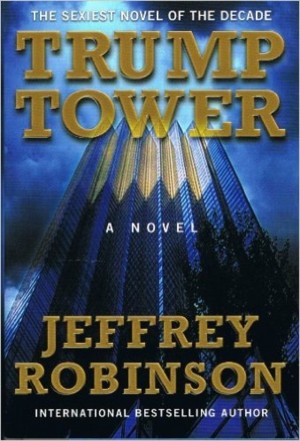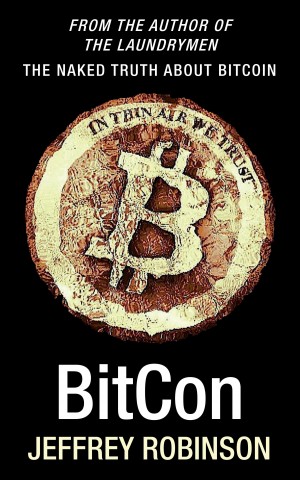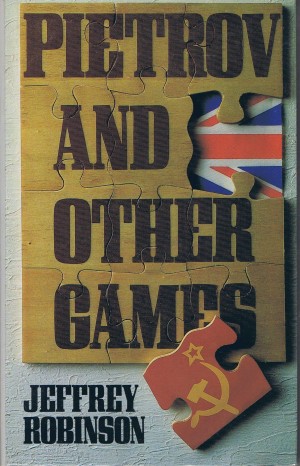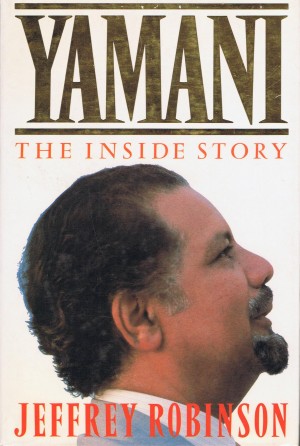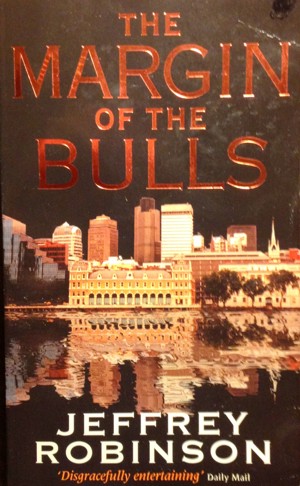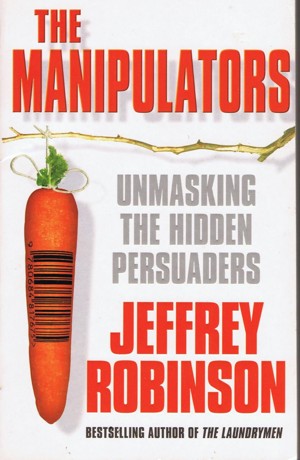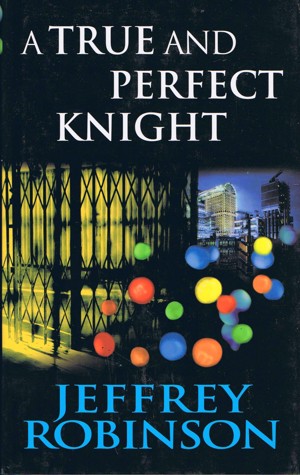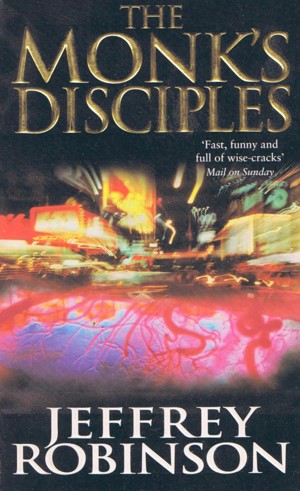Share with Friends
Interview with Jeffrey Robinson
Published 2015-09-02.
Smashwords Interviews are created by the profiled author or publisher.
Latest books by This Author
There's a Sucker Born Every Minute
by Jeffrey Robinson
Price:
$4.99 USD.
Words: 57,750.
Language:
English.
Published: December 17, 2023
.
Categories:
Nonfiction » True Crime » Hoaxes & deceptions
A Revelation of Audacious Frauds, Scams, and Cons -- How To spot Them, How to Stop Them
The Ginger Jar
by Jeffrey Robinson
Price:
$3.99 USD.
Words: 89,430.
Language:
English.
Published: December 9, 2023
.
Categories:
Fiction » Thriller & suspense » Action & suspense, Fiction » Thriller & suspense » Spies & espionage
A scheme so simple, it was almost perfect. So deadly, it must be stopped. From the author of Pietrov and Other Games, A True and Perfect Knight, The Monk's Desciples,The Margin of the Bulls and Trump Tower.
Trump Tower
by Jeffrey Robinson
Price:
$4.99 USD.
Words: 146,710.
Language:
American English.
Published: March 14, 2016
.
Categories:
Fiction » Romance » Contemporary, Fiction » Urban
Jeffrey Robinson throws-back to the great story-telling traditions of Harold Robbins, Arthur Hailey, Dynasty and Dallas in this big, sexy novel that takes you inside the secret world of the rich, famous, infamous, powerful and scandalous who live and work at the poshest address in New York City.
BitCon - The Naked Truth About Bitcoin
by Jeffrey Robinson
Price:
$3.99 USD.
Words: 45,150.
Language:
English.
Published: October 18, 2015
.
Categories:
Nonfiction » Business & Economics » Business finance, Nonfiction » Business & Economics » Banks & banking
With typical wit, humor, and his jaundiced eye for cons, scams, pirates, hype, market manipulation, misinformation, outright lies, self-fulfilling Ponzis, sleight of hand and a mob of greater fools, Jeffrey Robinson (author of The Laundrymen) produces the evidence to prove that when it comes to bitcoin, what you see is simply not what you get.
Pietrov And Other Games
by Jeffrey Robinson
Price:
$2.99 USD.
Words: 92,410.
Language:
English.
Published: August 29, 2015
.
Categories:
Fiction » Thriller & suspense » Spies & espionage, Fiction » Thriller & suspense » Psychological thriller
A Russian scientists goes missing at the height of the Cold War. The Russians want him back. The British and the Americans want him to defect. This is the Cold War in divided Berlin during the 1980s, a chilling time, when the three great powers played their silly, and often reckless, games.
Yamani - The Inside Story
by Jeffrey Robinson
Price:
$5.99 USD.
Words: 123,540.
Language:
English.
Published: April 23, 2014
.
Categories:
Nonfiction » Politics & Current Affairs » World leaders, Nonfiction » Biography » Political biography
Yamani - The acclaimed biography of the man who could move markets with a whisper and who, for 28 years on the world stage, was one of the most powerful, most famous and most recognizable people on the planet. It is the story of oil, of Saudi Arabia, of the West and of ultimate political power.
The Margin of the Bulls
by Jeffrey Robinson
Price:
$2.99 USD.
Words: 126,680.
Language:
American English.
Published: March 24, 2014
.
Categories:
Fiction » Thriller & suspense » General, Fiction » Historical » United Kingdom
In 1970, an American calling himself Bay Radisson arrived in England with no place to live and no place to go back to. Twenty years later, he was riding the crest of a wave, as one of Britain's most successful "risk takers." Here are stories of wheeling-and-dealing that the libel laws would never permit as non-fiction, from the days when the City of London was the Wild West.
The Manipulators - Unmasking the Hidden Persuaders --- The Conspiracy To Make Us Buy
by Jeffrey Robinson
Price:
$6.99 USD.
Words: 91,310.
Language:
English.
Published: September 9, 2013
.
Categories:
Nonfiction » Business & Economics » Advertising, Nonfiction » Social Science » Media studies
This is the unmasking of Van Packard's classic expose of the advertising industry, “The Hidden Persuaders,” and how the real “Mad Men” of Madison Avenue get us to spend.
A True and Perfect Knight
by Jeffrey Robinson
Price:
$2.99 USD.
Words: 108,830.
Language:
English.
Published: September 9, 2013
.
Categories:
Fiction » Humor & comedy » General, Fiction » Business
With warmth, humor and his unique eye for life’s absurdities, Jeffrey Robinson turns one man’s adventure in the real world into the “feel good” novel of the year.
The Monk's Disciples
by Jeffrey Robinson
Price:
$2.99 USD.
Words: 115,650.
Language:
English.
Published: September 8, 2013
.
Categories:
Fiction » Mystery & detective » General, Fiction » Thriller & suspense » Crime thriller
An American "ambulance chasing" lawyer in London, England finds himself inadvertently caught up in the high-stakes, cut-throat race for the elusive FAT-gene. With taut plotting, memorable characters and humor, Jeffrey Robinson lays bare the extent that men of science will go - in the name of science - to further their own naked ambition.

